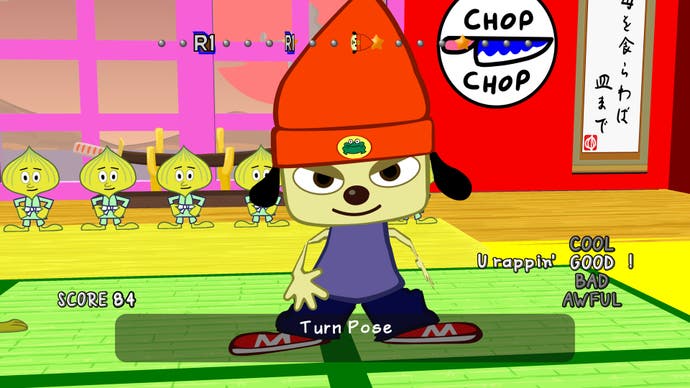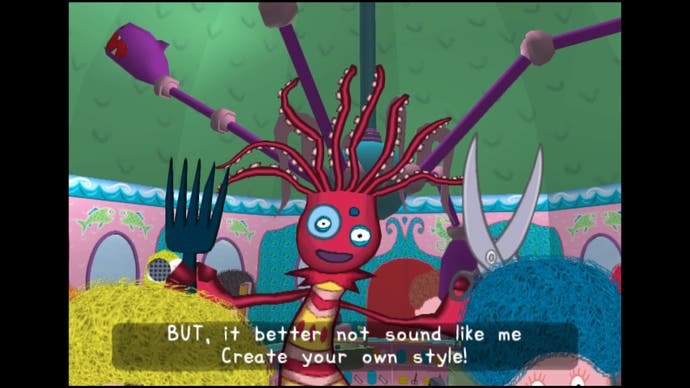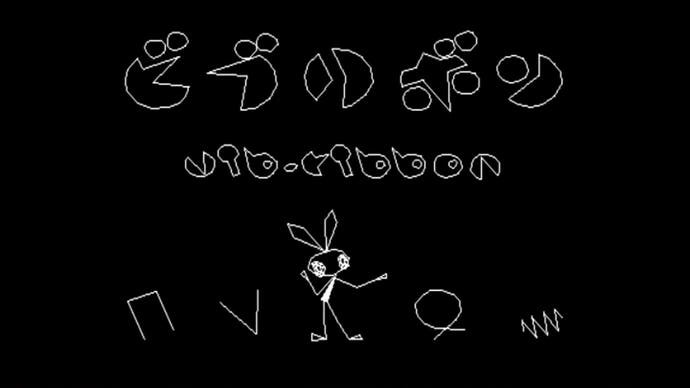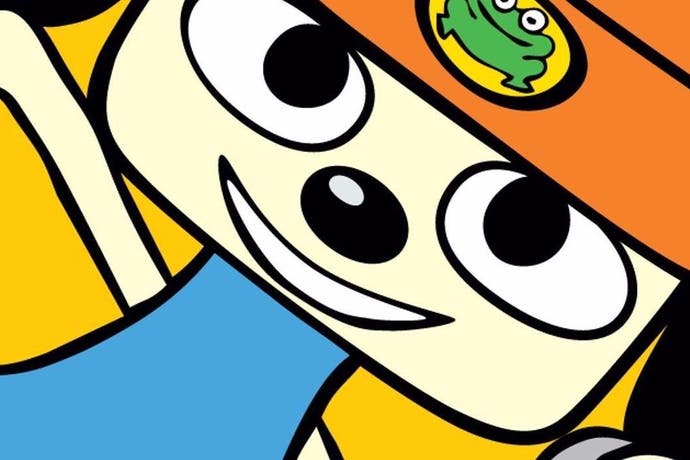I hate freedom
Sarah Ditum would ramen have fun.
I am not a real gamer. I'm just putting that out there now, in the spirit of Fat Amy, to spare anyone the trouble of investigating whether I am in fact a real gamer. I'm not. Not that I imagine those investigations would be especially time-consuming: as I understand it, the conjunction of controller and vagina is usually considered sufficient to make the diagnosis, leading to no end of false positives in the detection of not-real gamers. But in this case, it's true. I'm as not-real as they come.
Crafting is boring. Sandboxes are tediously over-large. Put me in a FPS and I'm more likely to bumble into a corner aiming at my own feet than I am to score a headshot. Or an anything shot. The idea of these things - yes, I love the idea of these things. I think about the infinite, unscrolling worlds of No Man's Sky and a part of my heart leaps as if I was a real explorer paused on the cusp of the unknown. I imagine delving far into a BioWare game and becoming one of those people who speaks with true affection about the alien lover whose breasts I glimpsed and heart I shattered in the deepest outposts of the galaxy.

Maybe I caught one too many screenings of the old PlayStation "Double Life" TV spot at a formative age and this idea of the leisure-time adventurer connected via whirring CD-ROM to a world of endless possibility became permanently fused with my nascent ideas of "aspiration". Not, actually, that the ad looks particularly aspirational now. It looks grotty in the way the 90s took for gritty. And the thing it was selling isn't that much more attractive than the paedo-chic visuals in the end.
Space, choice and freedom all sound very appealing until I'm given them, and then they just feel like work. It's bad enough having to deal with the daily quest of the schoolrun plus side mission to the supermarket, where I have to decide which items of the almost unintelligible number on offer I am going to craft into a dinner. No I do not want to put on a suit of digital armour and make the same kind of exhausting decisions all over again in the evening. You can fast-travel that idea of "fun" where the sun doesn't shine.
Which is why, when watching the announcements from the PlayStation Experience, only one thing raised any flicker of excitement in me: PaRappa is back. A PlayStation One game about a paper-thin rapping dog which asks almost nothing of the player other than that you hit the right button at the right time to rap along with a pre-written turn. That, my friends, is what entertainment is made of. Utter submission to the game.
When you play PaRappa, you're always travelling in a straight line: following the music, following the display at the top of the screen, following the supporting character who leads the song, following the story - which is an immaculately simple one of dog meets flower, dog falls in love with flower, dog overcomes minor obstacle to ask flower on date, flower says yes. None of your intricately overlapping subplots here, thank you.

Maybe NanaOn-Sha knew it had crafted a profound rejection of free will shaped like a flat dog in a beanie, because the sequel involved a plot about fighting for choice and scoring system that rewarded freestyling. PaRappa's town is being overrun by noodles, which turns out to be the work of Colonel Noodle who believes noodles to be "sweeter than idols, do damage like machetes". PaRappa wins by facing the Colonel down in a rap battle and convincing him that "many things can be tasty".
Predictably, my main takeaway (ha) from PaRappa the Rapper 2 was an obsession with noodles, which actually are, as Colonel Noodle maintains before being brainwashed out of his noble noodleizing efforts, the king of food. The songs are still great, even if they do have an unacceptable number of references to "finding your own beat", but the revised gameplay is not vastly an improvement: points with no regard to whether your rapping actually sounds in time.
Anyway, in the end PaRappa wins a lifetime supply of cheese, replacing his pasta problem with a dairy one and - even though I think this is supposed to be some kind of ironic punchline - meaning that our canine hero is freed once again from the terrible shackles of liberty. NanaOn-Sha has tried to revitalise rhythm a few times, but nothing is as perfect as its PlayStation One games. PaRappa the Rapper, and its guitar-based spin-off Um Jammer Lammy (which combines an only marginally musical squall of axe slinging from its indie-pixie goat hero with a scoring system so unforgiving that the plane level made me cry), are, as far as I'm concerned, close to the perfection of gaming.

The actual perfection of gaming is another NanaOn-Sha game, though. Vib Ribbon is so bare-bones that it could run on the PlayStation's RAM: just a stick figure rabbit and a line to dance on, white on a black background, with obstacles to be jumped by (of course) pressing the right button at the right time. These obstacles generated by the music - either the J-pop soundtrack or your own CDs, which you can put into the PlayStation.
If you do badly, you become a frog, then a worm, then you fail. If you do well, you become a gorgeous pirouetting angel: but even in your highest form, it's still just you and the line, obstacles swooping towards you, thought and doubt sliding away as you focus on the only thing that matters: pressing the right button at the right time. No story. No meaning. No characters. No decisions. Just the white line, and me, spinning along it forever.








